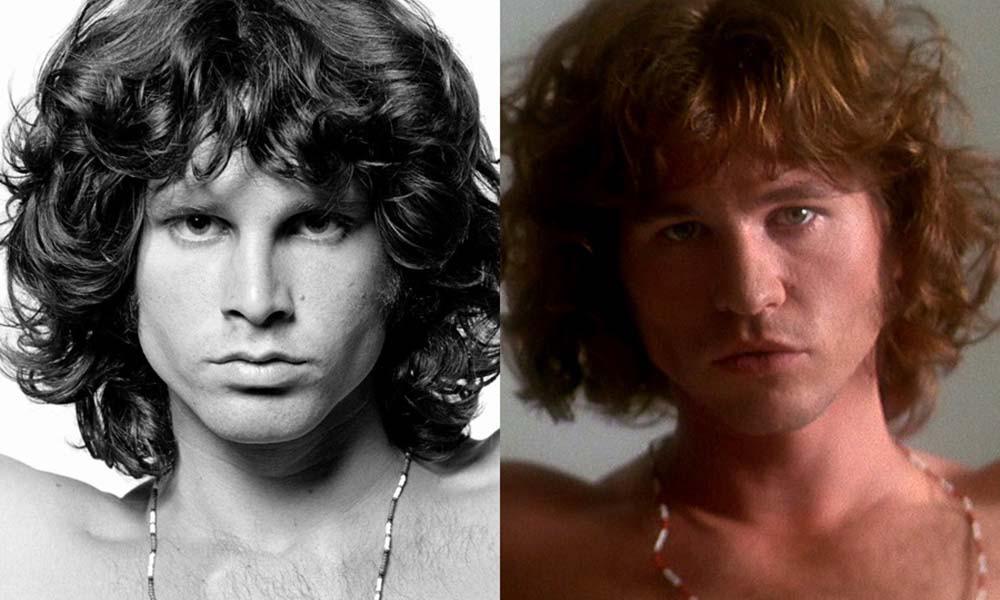“If my poetry aims to achieve anything, it’s to deliver people from the limited ways in which they see and feel”
Jim Morrison

To begin, it is easy to classify Oliver Stone’s The Doors as a biopic musical film. Stone takes the life of Jim Morrison and his career alongside fellow band members in The Doors to create a dramatized film of Morrison’s rise and fall. The musical film aspect is created using The Door’s own music throughout practically the entire soundtrack. An extremely important aspect in creating a quality biopic is the accurate choice of casting in relation to the looks and mannerisms of the person/persons being portrayed in the film. Stone cast Val Kilmer to be The Doors frontman and his resemblance to Morrison is eerie in its accuracy. It can be said that the entire cast from the actors playing other band members to Jim’s lovers resembles the real people quite well, but there is an uncanny resemblance between Kilmer and Jim that brings this movie to a whole another level within the genre. In a 1990 interview with the Tampa Bay Times, actual guitarist Robby Krieger stated that Kilmer turned into the character so perfectly that on-set “I even called him ‘Jim’ a few times without meaning to.” This casting element is extremely important to the creation of an intriguing biopic because it helps to develop that realism in the sense that when you are watching, you can genuinely believe you are seeing a film of The Doors. Another important aspect of the biopic genre is that elements of the story can be heightened or dramatized to captivate audiences and make. With Stone’s film, practically the entire timeline of The Door’s career is accurate, however, there are events and interactions that have been condemned as inaccurate by living members. As said by keyboardist Ray Manzarek, “Jim didn’t light Pam’s closet on fire. He didn’t throw a TV set at me. His student film didn’t have images from “Triumph of the Will.’ That was totally made up. And Jim never quit film school. HE graduated from UCLA.” After hearing a living band member publicly state that scenes within the film are fake, it would make one wonder why Stone would include these moments, but they add to the film. The biopic film is meant to be more than just clips of the band and information but is a dramatic and captivating story about the life of Morrison and The Doors. This genre film also works on playing with common expectations of the genre itself. When looking at other famous biopics about musicians or bands, they all seem to similarly fall under the category of a musical film (ex. Ray 2004, Bohemian Rhapsody 2018). These films all use music straight from whoever the movie is about. Directors of genre films also like to play on the expectations of the audience. For a casual viewer, The Doors is an exciting and deep dive into Morrison’s life and death with captivating moments in the band’s career, but for a more passionate fan, it can be too much at times and even displeasing in its inaccuracy. Manzarek also commented on the portrayal of the movie stating “The Doors were about idealism and the ‘60s quest for freedom and brotherhood. But the film isn’t based on love. It’s based on badness and chaos. Oliver has made Jim into an agent of destruction.” These tense moments of madness and chaos like Jim lighting Pam’s closet on fire or throwing a television at Ray create drama and suspense for us watchers, but they also branch away from the integrity and accuracy of the biopic.